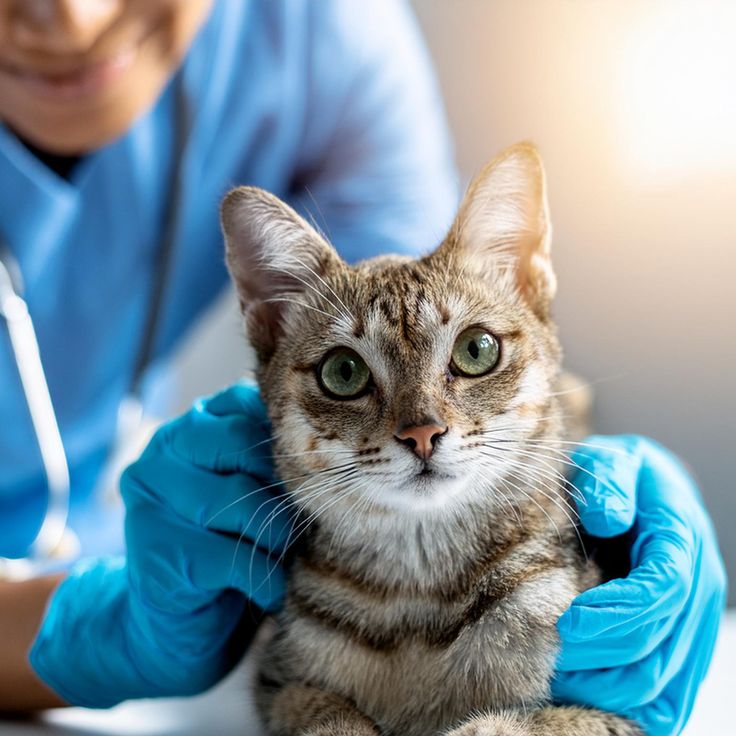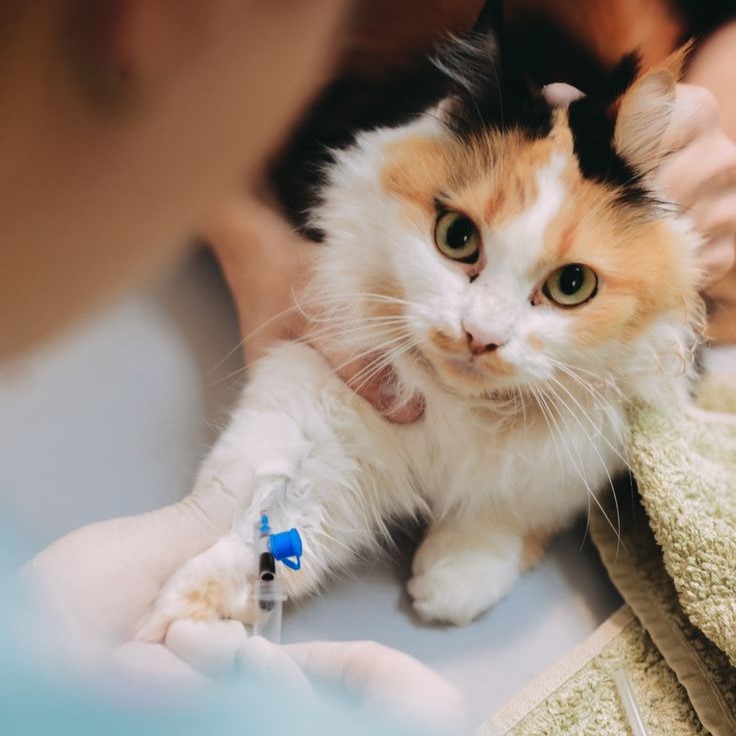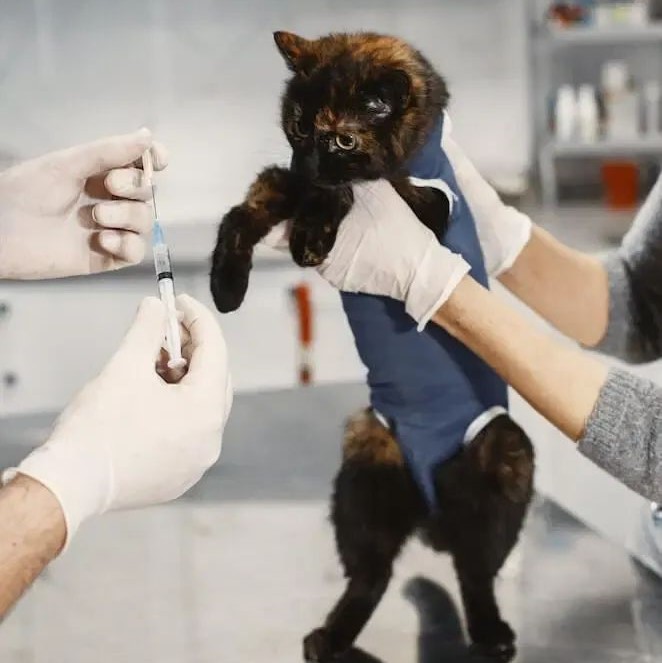Understanding Feline Kidney Disease
Kidney disease in cats is a common health issue, especially among older pets. The kidneys play a crucial role in filtering waste from the blood, regulating fluids, and maintaining electrolyte balance. When they are not functioning properly, it can lead to serious complications. It’s important to recognize the signs early. Symptoms may include increased thirst, frequent urination, weight loss, poor appetite, and lethargy. If you’re wondering, “how long can a cat live with kidney disease?” the answer depends on the type, severity, and how well the condition is managed.
There are two main types of kidney disease in cats: acute and chronic. Acute kidney disease develops quickly and can be caused by toxins, infections, or blockages. Chronic kidney disease, on the other hand, progresses slowly over time and is more common in senior cats.

While kidney disease can be serious, many cats live long, comfortable lives with proper care. Understanding the condition and working closely with your veterinarian can make a big difference in your cat’s quality of life.
How Long Can a Cat Live with Kidney Disease?
The question “how long can a cat live with kidney disease?” is one that many pet owners ask when their cat is diagnosed. The answer varies depending on several factors, including the stage of the disease, the cat’s overall health, and the effectiveness of treatment.
In general, cats with chronic kidney disease (CKD) can live for months or even years with proper management. Early detection and intervention are key to extending their lifespan. On the other hand, acute kidney disease can be more severe, and without prompt treatment, it can be life-threatening.
Some cats may show only mild symptoms and live for several years with regular veterinary care. Others may experience rapid decline, especially if the disease is advanced or if there are underlying health issues. It’s important to work with your vet to develop a care plan that suits your cat’s needs.
While kidney disease cannot always be cured, it can often be managed effectively. With the right diet, medications, and monitoring, many cats enjoy a good quality of life for a long time.
Common Symptoms of Kidney Disease in Cats
Recognizing the symptoms of kidney disease in cats is essential for early diagnosis and treatment. Some of the most common signs include:
- Increased water consumption and urination
- Weight loss despite a normal or increased appetite
- Poor coat condition and lack of energy
- Vomiting or nausea
- Loss of appetite
- Bad breath or oral ulcers
- Lethargy or decreased activity levels
These symptoms can be subtle at first, which is why regular veterinary check-ups are so important, especially for older cats. If you notice any of these signs, it’s best to consult your vet as soon as possible.

Keep in mind that these symptoms can also be caused by other health conditions. That’s why a proper diagnosis is necessary to determine whether your cat has kidney disease or another issue.
Early detection and treatment can significantly improve your cat’s outlook. So, if you’re wondering, “how long can a cat live with kidney disease?” remember that timely care can make a big difference.
Treatment Options for Feline Kidney Disease
Treating kidney disease in cats involves a combination of medical care, dietary changes, and lifestyle adjustments. The goal is to slow the progression of the disease and improve your cat’s quality of life.
One of the most important steps is to adjust your cat’s diet. Specialized kidney diets are formulated to reduce the workload on the kidneys while still providing essential nutrients. These foods are typically lower in protein and phosphorus and higher in omega-3 fatty acids.
Medications may also be prescribed to manage symptoms and complications. These can include drugs to control high blood pressure, reduce vomiting, or stimulate appetite. In some cases, fluid therapy may be needed to help flush toxins from the body.
Regular veterinary check-ups are crucial to monitor your cat’s progress and adjust the treatment plan as needed. Your vet may recommend blood tests, urine analysis, and other diagnostic tools to track the condition over time.
By following a comprehensive treatment plan, many cats with kidney disease can live comfortably for a long time. This helps answer the question, “how long can a cat live with kidney disease?” with a more positive outlook.
Managing Kidney Disease in Senior Cats
Senior cats are particularly vulnerable to kidney disease, which is why it’s important to pay close attention to their health as they age. Regular veterinary visits can help detect early signs of the condition and allow for timely intervention.
Proper nutrition is a key part of managing kidney disease in older cats. As mentioned earlier, specialized diets can support kidney function and reduce the risk of further damage. It’s also important to ensure your cat stays hydrated, as dehydration can worsen the condition.
Monitoring your cat’s behavior and physical condition is equally important. Keep an eye on their eating habits, weight, and energy levels. Any sudden changes should be reported to your vet.
In addition to medical care, providing a calm and stress-free environment can help your cat feel more comfortable. Minimizing exposure to toxins, keeping them indoors, and ensuring they have easy access to food, water, and litter boxes are all part of a supportive care plan.
With the right care and attention, many senior cats with kidney disease can live happy, healthy lives. This makes the question “how long can a cat live with kidney disease?” more manageable and less daunting.
Supportive Care for Cats with Kidney Disease
Supportive care plays a vital role in helping cats with kidney disease live longer and more comfortably. This includes both medical treatments and daily care routines that focus on your cat’s overall well-being.

Hydration is one of the most important aspects of supportive care. Many cats with kidney disease benefit from subcutaneous fluid therapy, which helps maintain proper fluid balance and supports kidney function.
Dietary management is another key component. Feeding small, frequent meals can help prevent nausea and encourage your cat to eat. High-quality, easily digestible food is recommended to provide essential nutrients without overworking the kidneys.
Pain management and comfort are also important. Some cats may experience discomfort due to the disease, and your vet can recommend appropriate pain relief options. Keeping your cat in a quiet, safe space can also reduce stress and promote healing.
Regular check-ups and communication with your vet are essential for adjusting the care plan as needed. By staying proactive, you can help your cat live as comfortably as possible, regardless of how long they live with kidney disease.

When to Seek Veterinary Help
If your cat is showing signs of kidney disease, it’s important to seek veterinary help as soon as possible. While some symptoms may seem minor, they can indicate a serious underlying condition.
You should contact your vet immediately if your cat experiences:
- Severe vomiting or diarrhea
- Sudden weight loss or refusal to eat
- Difficulty breathing or labored respiration
- Seizures or extreme lethargy
- Changes in behavior or personality
Even if your cat seems to be improving, it’s still a good idea to have them checked regularly. Early diagnosis and treatment can significantly improve the outcome and help answer the question, “how long can a cat live with kidney disease?”
Your vet can perform tests such as blood work, urinalysis, and imaging to determine the cause of the symptoms and develop a treatment plan. Don’t wait—early intervention is key to giving your cat the best chance at a long, healthy life.
Conclusion: How Long Can a Cat Live with Kidney Disease?
In conclusion, the question “how long can a cat live with kidney disease?” is one that many pet owners face. The answer depends on various factors, including the type and stage of the disease, the cat’s overall health, and the quality of care provided.
With early detection, proper treatment, and consistent management, many cats with kidney disease can live for years with a good quality of life. While the condition can be serious, it is not always fatal, and many cats thrive with the right support.
As a responsible pet owner, it’s important to stay informed, monitor your cat’s health closely, and work closely with your veterinarian. By doing so, you can help your cat live longer and more comfortably, no matter how long they live with kidney disease.

Remember, every cat is different, and the best way to address this question is through personalized care and expert guidance. If you’re ever unsure, don’t hesitate to reach out to a qualified veterinarian. They can provide the information and support you need to make the best decisions for your feline companion.









